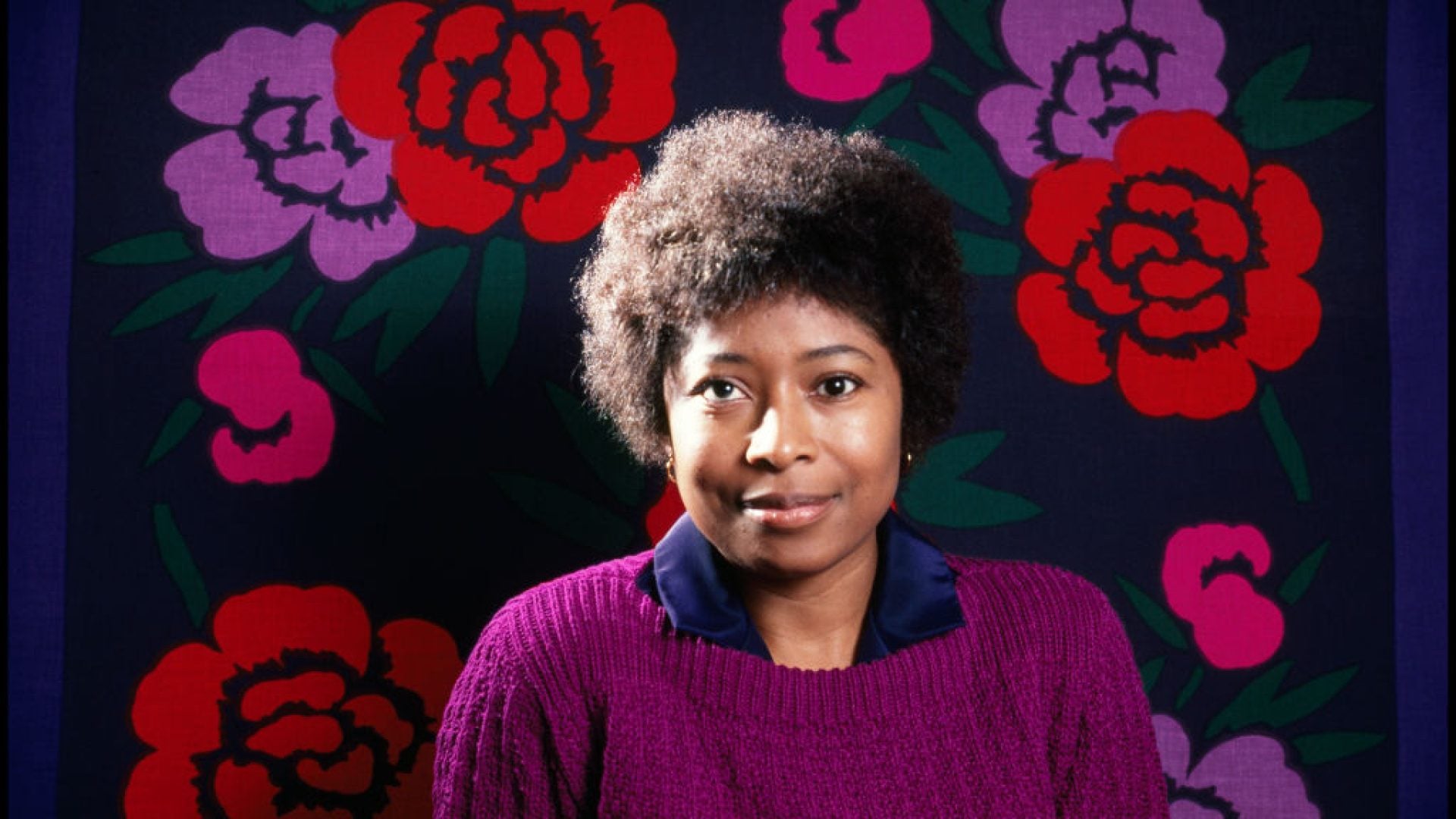40 years ago, the Pulitzer Prize went to Walker, who had authored a book that has since spawned a myriad of theater and film adaptions.

Portrait of American author, poet, and activist Alice Walker as she poses in her home, San Francisco, California, November 1, 1982. (Photo by Janet Fries/Getty Images)By Rayna Reid Rayford · Updated December 21, 2023
Forty years ago in 1983, Alice Walker was awarded the Pulitzer Prize in Fiction, for her novel The Color Purple.
This was a historic moment because Walker was the first Black “woman to win a Pulitzer Prize for Literature.” That year Walker also won the National Book Award, also for The Color Purple. And over the course of her prolific career, Walker has gone on to write over 40 genre-spanning books.
The Color Purple was a landmark work that candidly depicted “the experience of poor Black women in the American South.” Per the author’s personal website, it portrays “liberation from enforced, male dominant, religion and thought; [and] also poses the question never asked by societies in which they occur: what becomes of the 𝘤𝘩𝘪𝘭𝘥ren whose parents are lynched/assassinated?”
The novel is written in epistolary form, meaning it consists of letters, and is written in Black vernacular English. This was something Walker had to fight for, as her editor cautioned against relying on this particular format; however, she “would not yield on what she felt had been passed down to her from her ancestors.”
A biography on Walker describes how the backstory for her 1983 award-winning work originated “from Walker’s grandfather’s life-long love for Estella ‘Shug’ Perry, even though he was married to Rachel.”
The Color Purple has been adapted into two feature films, including this year’s upcoming Christmas release, a musical version, and even a BBC radio serial.
According to the American Library Association, The Color Purple was first challenged in 1984 in an Oakland, CA high school for the book’s “𝓈ℯ𝓍ual and social explicitness” and also for “troubling ideas about race relations, man’s relationship to God, African history, and human 𝓈ℯ𝓍uality.” Subsequently, the book has been subject to challenges in 1985, 1986, 1989, 1990, 1992, 1995, 1997, 1999, 2008, and even 2022 under the latest attempts to ban and restrict books.
During 2012 Banned Books Week, Walker spoke about being included in this category, stating “I found it very interesting. I remember feeling, and understanding, the fear that drove some parents in the schools to wish to ban The Color Purple. I realized, given the 𝓈ℯ𝓍ism in our culture, that some of the complainers were probably people who had at some time 𝓈ℯ𝓍ually abused 𝘤𝘩𝘪𝘭𝘥ren. Or, they had been 𝓈ℯ𝓍ually abused themselves and could not bear thinking about it, as adults.”
“There were also those who felt the language, or way of speaking, of their parents and grandparents would best be forgotten, since it was not ‘correct’ standard English speech,” added Walker. “I actually felt a lot of compassion for everyone.”
